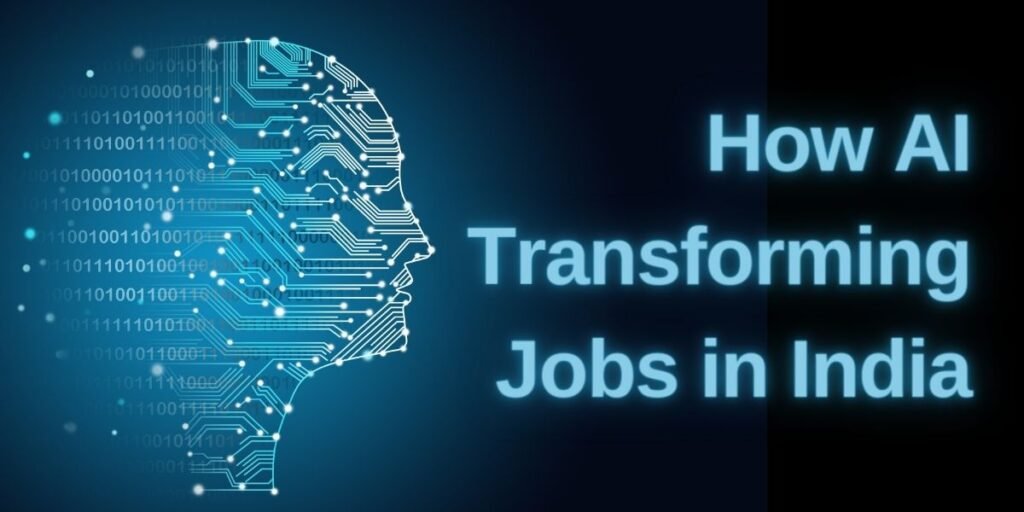The landscape of work in India is undergoing a profound evolution, largely propelled by advancements in artificial intelligence (AI). As we delve into the impact of AI on job landscapes, it becomes evident that significant shifts are underway, reshaping traditional roles and industries.
The Current Job Scenario in India
Presently, India’s job market reflects a dynamic mix of opportunities and challenges. With a burgeoning population and a diverse economy, the nation faces the task of balancing job creation with skill development amidst evolving global trends.
What is Artificial Intelligence (AI)?
Artificial Intelligence, or AI, refers to the simulation of human intelligence in machines, enabling them to perform tasks that typically require human intelligence. In modern society, AI finds application across various industries, revolutionizing processes and decision-making.
The Role of AI in Indian Industries
Across traditional sectors like agriculture and manufacturing, as well as emerging domains like IT and healthcare, AI is making significant inroads. Its adoption is streamlining operations, enhancing productivity, and paving the way for innovative solutions to longstanding challenges.
Automation vs. Augmentation: Understanding the Difference
Automation involves the use of technology to perform tasks with minimal human intervention, while augmentation focuses on enhancing human capabilities through technology. In the workplace, AI serves as both an automated tool and an augmentation aid, complementing human skills.
Job Creation vs. Job Displacement
The integration of AI brings about a dual effect on job opportunities, creating new roles while also displacing certain traditional positions. Sectors embracing innovation witness job creation, while others undergo restructuring, necessitating reskilling and adaptation.
Upskilling and Reskilling Initiatives in India
Recognizing the importance of staying abreast of technological advancements, both governmental and private entities in India have launched initiatives to upskill and reskill the workforce. Continuous learning is essential to remain competitive in the age of AI.
AI and Remote Work in India
AI is reshaping remote work trends in India, offering advantages such as increased efficiency and flexibility. However, challenges such as cybersecurity risks and digital divides must be addressed to fully harness the benefits of AI-enabled remote work.
Addressing Concerns: Ethical and Social Implications of AI
As AI adoption proliferates, ethical considerations surrounding data privacy, algorithmic bias, and job displacement come to the fore. Moreover, the societal implications of AI-driven transformations necessitate thoughtful deliberation and proactive measures.
Embracing AI: Opportunities for Indian Professionals
Despite the disruptions caused by AI, it also presents vast opportunities for Indian professionals. Careers in AI-related fields such as data science, machine learning, and robotics are on the rise, requiring individuals to cultivate technical expertise and adaptability.
Balancing Human and Machine Collaboration
Effective collaboration between humans and AI systems hinges on understanding each other’s strengths and limitations. Strategies aimed at fostering symbiotic relationships in the workplace empower individuals to leverage AI as a tool for innovation and problem-solving.
Challenges and Roadblocks to AI Adoption in India
Despite the promise of AI, barriers such as infrastructural limitations, regulatory complexities, and skill gaps impede widespread adoption in India. Overcoming these challenges requires collaborative efforts and targeted interventions from stakeholders.
The Future Outlook: Predictions for AI’s Impact on Indian Jobs
Looking ahead, AI is poised to exert a profound impact on the job landscape in India. Predictions range from increased automation in routine tasks to the emergence of entirely new job categories, underscoring the need for adaptive strategies.
In conclusion, the advent of AI heralds a paradigm shift in the Indian job landscape, presenting both challenges and opportunities. Adaptability, continuous learning, and collaborative efforts are key to navigating this transformative journey successfully. By embracing AI responsibly and fostering human-machine collaboration, India can chart a course towards a future where technology serves as a catalyst for inclusive growth and innovation.
FAQs (Frequently Asked Questions)
What industries in India are most affected by AI?
Industries such as healthcare, finance, and manufacturing are experiencing significant AI-driven transformations.
How can workers prepare for AI-induced job changes?
Workers can prepare by acquiring digital literacy, pursuing relevant training programs, and cultivating soft skills such as adaptability and critical thinking.
Are AI technologies accessible to all businesses in India?
While AI technologies are becoming more accessible, challenges related to affordability and technical expertise persist, particularly for small and medium-sized enterprises.
Will AI lead to mass unemployment in India?
While certain roles may become obsolete, AI also creates new job opportunities, albeit with different skill requirements. The net impact on employment hinges on proactive strategies for workforce development and job creation.
What are the ethical concerns associated with AI adoption in India?
Ethical concerns include issues of data privacy, algorithmic bias, and the equitable distribution of benefits and risks associated with AI technologies.
What role does education play in preparing the Indian workforce for AI?
Education plays a crucial role in equipping the workforce with the skills and knowledge needed to thrive in an AI-driven economy. Curricula should be updated to include AI-related subjects and lifelong learning initiatives should be promoted.
